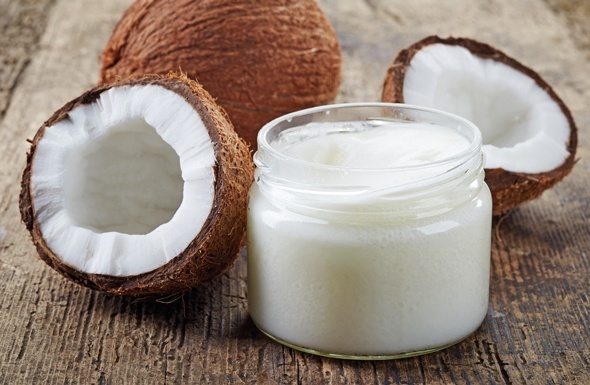New AHA guidelines warn against Coconut Oil. Truth?
June 21, 2017
Is Coconut Oil bad for you? The Hot Topic in the Health and Wellness World this week is the new Guidelines Issued by the American heart Association regarding Coconut oil.
Here is my two cents on coconut oil
Good health is more than just about one food. Good health is about the balance of your Mind, Body( nutrition ) and Spirit. The other thing I have found in my practice is that what is superfood for one person is not that great for another. Everyone is unique and has their own set of experiences so we test to see what is best for you.
MBG interviewed some of the top wellness professionals and asked them for their thoughts on the matter. Here is the article
The pros and cons from MBG experts
The wellness world is no stranger to controversy, but coconut oil being unilaterally dismissed (“Coconut oil isn’t healthy. It’s never been healthy,” trumpeted the viral headline announcing the study) struck a particularly devastating note among the many who touted its miraculous properties. “The extremely high content of saturated fat has been a concern of mine in the past,” says Dr. Joel Kahn, a cardiologist and best-selling author. He doesn’t support a saturated fat-heavy diet, and encourages instead focusing on fruits, vegetables, whole grains, and legumes.
Like so many things nutrition-related, though, there are two (and often 20) sides to every story—and that certainly held true for this one.
Is coconut oil unhealthy?
“There has never been a debate that coconut oil contains higher amounts of saturated fat and can increase total cholesterol levels. This isn’t new news,” says Dr. Will Cole, a functional medicine practitioner. “The studies the AHA cite do not link eating more coconut oil to heart disease, they link it to increasing cholesterol numbers. The reality is, total cholesterol is a poor predictor for assessing heart attack and stroke risk. Studies have found that there might be no association between high total cholesterol and heart attack and stroke risk.”
Dr. Sara Gottfried, a hormone expert and best-selling author, notes that in the many years the American Heart Association has been pushing low-fat diets, there has been a growing epidemic of obesity and diabetes. “I’m not a fan of blanket statements; the future of medicine is personalized to the individual based on the gene/environment interaction. Coconut oil is unusual in that it contains medium-chain triglycerides that are well-proven to speed metabolism and assist in fat loss. Another component is lauric acid, found in breastmilk, which is antimicrobial.”
Dr. Robin Berzin, CEO and founder of Parsley Health, explains that “the AHA’s recommendation is based on an out of date and oversimplified understanding of the role of cholesterol in heart disease. While very high levels of LDL are problematic, LDL total number is much less important than LDL composition—the shapes and sizes of the particles themselves. It is the small, dense particles that are inflammatory and associated with heart disease. The larger, fluffy particles are not. This goes back to the current debate over the health of saturated fat and eating fat. High saturated-fat consumption in a diet that is otherwise void of adequate fiber and leafy greens, and too high in sugar and refined carbohydrates, increases small, dense LDL. High fat consumption from clean sources such as monounsaturated fats (olive oil) and even saturated fat (organic coconut oil) in a diet mainly free from sugar and flours and high in vegetables and fibers can actually improve cholesterol composition.”
That said, while every doctor spoke to disagreed with the AHA’s unequivocal dismissal of coconut oil, almost all agreed that the way it’s often consumed in the wellness world isn’t optimal either.
“The problem with saturated fats like coconut oil occurs when people eat them with refined grains (which turn into sugar) such as breads and pasta or sugary foods,” explains Dr. Cole. “This ‘mixed meal’ combination amplifies the inflammatory effects of sugar.”
In essence, when it comes to your health, you need to look at the whole picture rather than an isolated ingredient. Coconut oil interacts differently in the human body depending on what else is being consumed. Supplementing a high-sugar, high-refined-carb diet with coconut oil will increase the bad type of cholesterol and contribute to inflammation. As Dr. Cole puts it, “If you’re not going to eat vegetables and avoid carby junk foods, I suggest limiting your saturated fat intake—coconut oil included.”
The experts also noted that portion size matters. “The idea proposed by some so-called health authorities to add 1 to 2 tablespoons of coconut oil to every meal is not good for everyone,” says Dr. Gottfried. “Some genotypes gain weight with such a large load of fat. Coconut oil is safe, especially for cooking, when the dose is right for you. For me, that’s 1 or 2 tablespoons per day.”
The bottom line?
Every expert agreed that coconut oil can still be considered a health food, due to its medium-chain triglycerides, lauric acid, and a general misunderstanding of saturated fat. It does, however, need to be consumed in an otherwise generally healthy diet in order not to cause additional inflammation in the body, and its status as a healthier cooking oil does not give carte blanche to eat tablespoons of it daily. “All this coconut-flavored saturated-fat banter really highlights what functional medicine excels at: finding out what your body loves and hates,” Dr. Cole says. “We are all different. Seeing thousands of patients over the years, I certainly can’t deny the fact that some people do better with less saturated fats and some thrive with more. It’s about what works for you.”
Have a healthy week
Dr Pia
